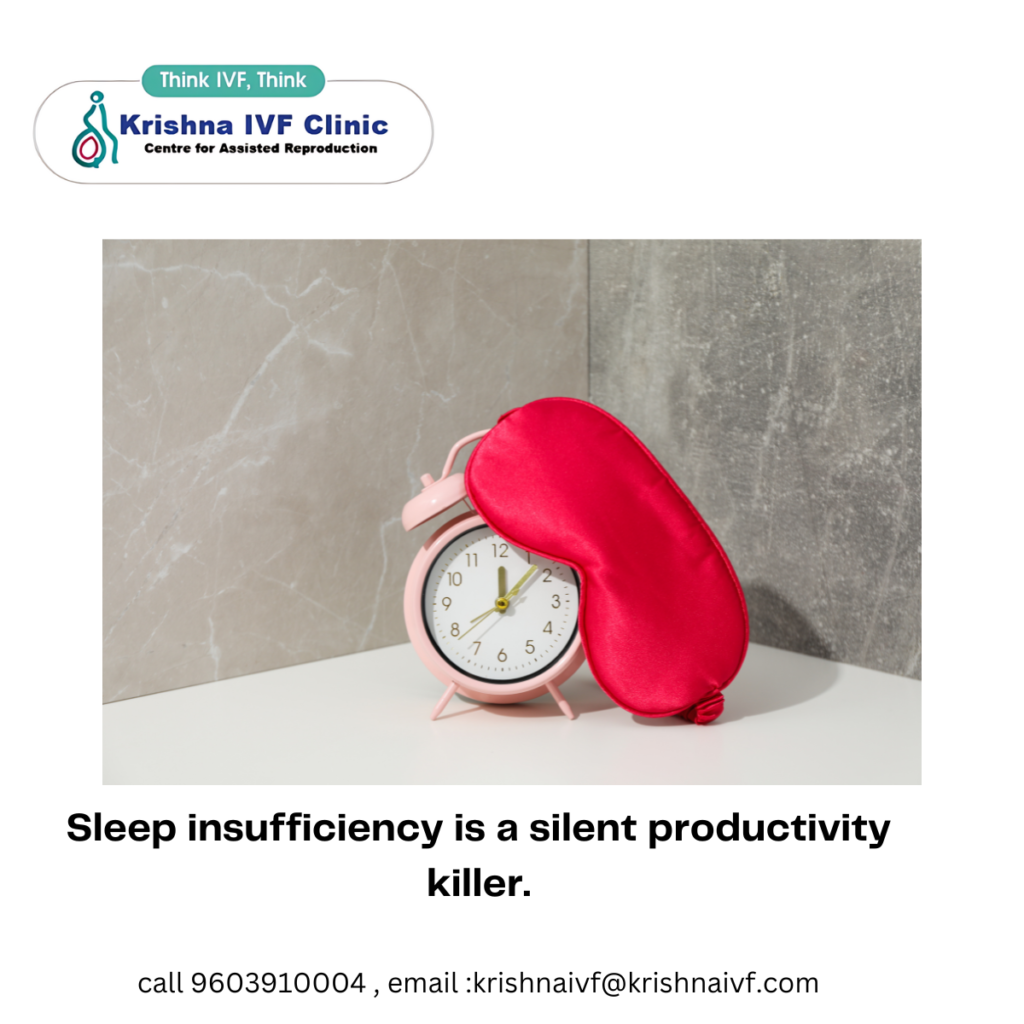Why Sleep Insufficiency is More Harmful Than You Think
We all understand the value of a good night’s sleep, but what happens when you don’t get enough? Sleep insufficiency, unlike insomnia, isn’t about struggling to fall asleep; it’s when life’s demands stop you from getting the rest you need. This common issue affects millions, leading to tired days and potential long-term health risks. In this post, we’ll explore why sleep is so vital, identify symptoms of sleep insufficiency, and offer practical tips to help you reclaim your rest.
– Dr. G. A. Ramaraju DNB PhD, Consultant Krishna IVF Clinic

Why Sleep is Essential:
Sleep is the foundation of our daily well-being. It recharges our bodies and minds, keeping us sharp, healthy, and ready to face the day. Lack of restful sleep can undermine your immune system, make you more susceptible to illness, and increase your risk for serious conditions like obesity and heart disease.
Symptoms and Risks:
Do you find yourself nodding off during meetings or feeling irritable without cause? These might be signs of sleep insufficiency. Ignoring these symptoms can lead to more severe issues like accidents, job performance problems, and even chronic health conditions.
The recommended daily healthy duration of sleep based on current scientific consensus and guidelines:
Newborns (0-3 months): 14-17 hours per day
Infants (4-11 months): 12-15 hours per day
Toddlers (1-2 years): 11-14 hours per day
Preschoolers (3-5 years): 10-13 hours per day
School-age children (6-13 years): 9-11 hours per day
Teenagers (14-17 years): 8-10 hours per day
Young adults (18-25 years): 7-9 hours per day
Adults (26-64 years): 7-9 hours per day
Older adults (65+ years): 7-8 hours per day.
How to Improve Your Sleep:
Creating a sleep-friendly environment is vital to combating sleep insufficiency. Start by setting a consistent bedtime, reducing caffeine intake in the afternoon, and making your bedroom a calm, dark haven. Minor adjustments like these can drastically improve the quality of your sleep.
Conclusion:
If sleep insufficiency is holding you back, acting now is essential. Speak with a healthcare provider to explore solutions that fit your lifestyle. Remember, sleep isn’t just downtime—it is necessary for a healthy, happy life.
Sources:
1) National Sleep Foundation: [Sleep Duration Recommendations (https://www.sleepfoundation.org/how2)sleep-works/how-much-sleep-do-we-really-need)
2) CDC: [How Much Sleep Do I Need?] (https://www.cdc.gov/sleep/about_sleep/how_much_sleep.html)
3) American Academy of Sleep Medicine: [Recommended Sleep Times] (https://aasm.org/recommended-amount-of-sleep/)
